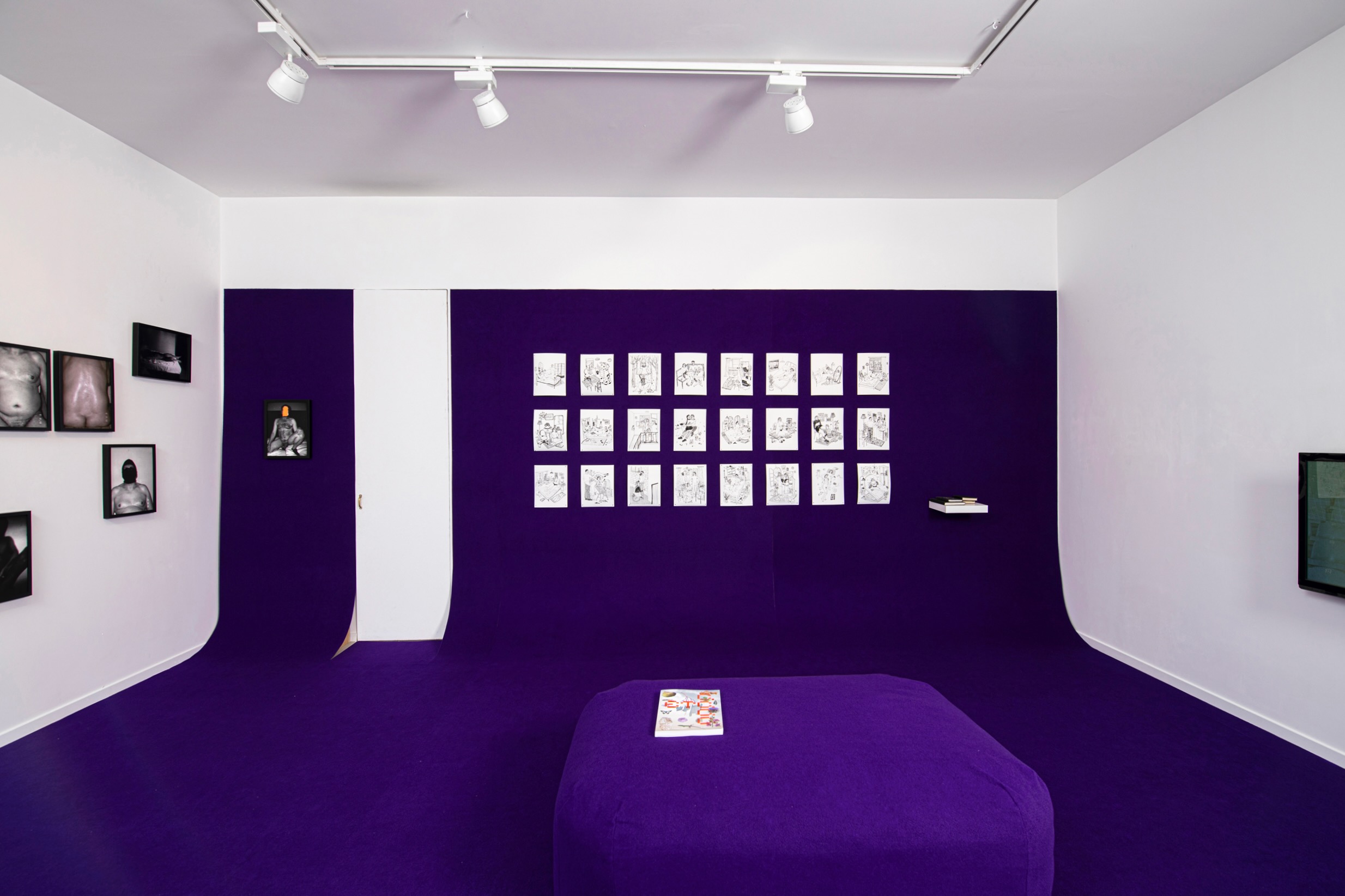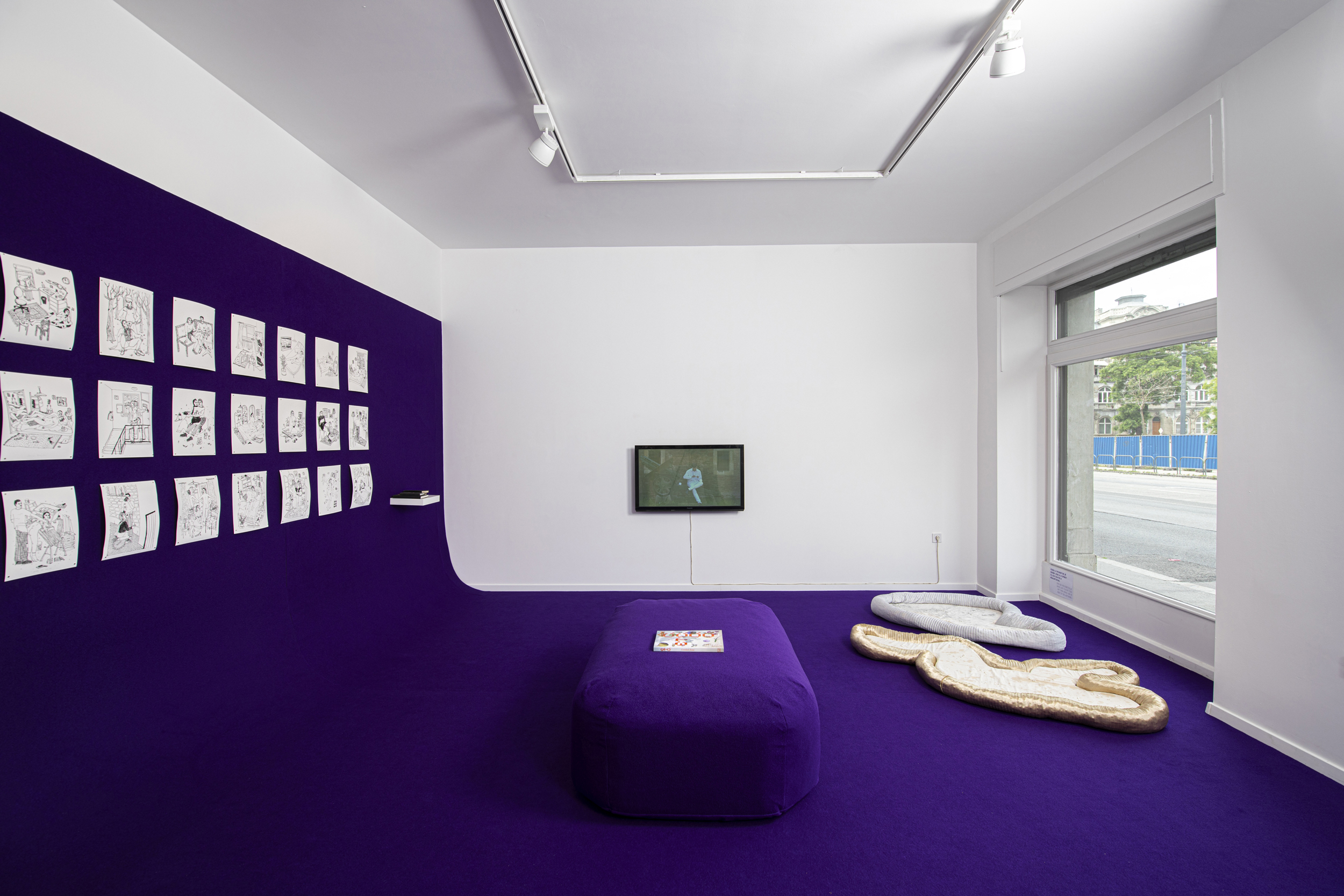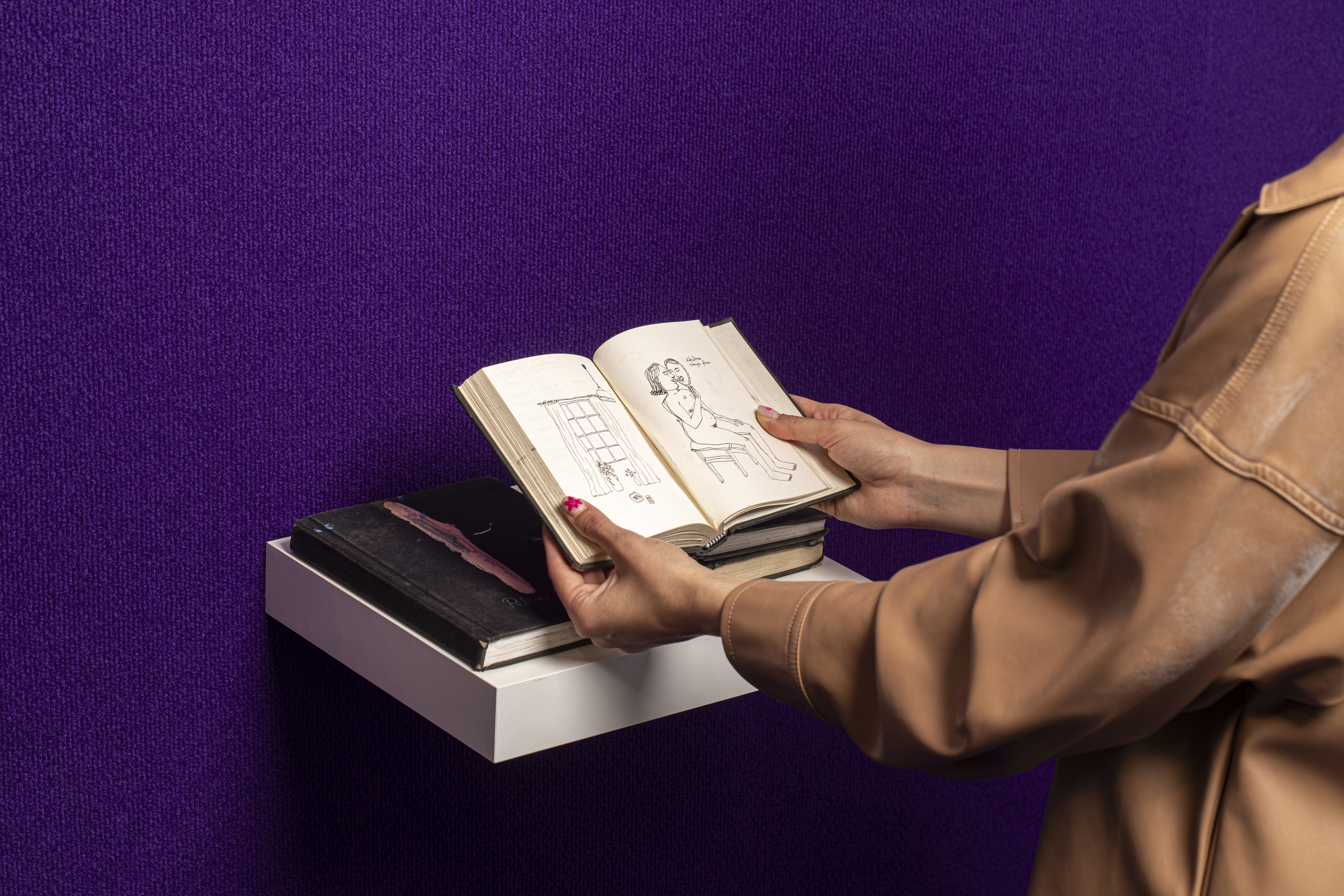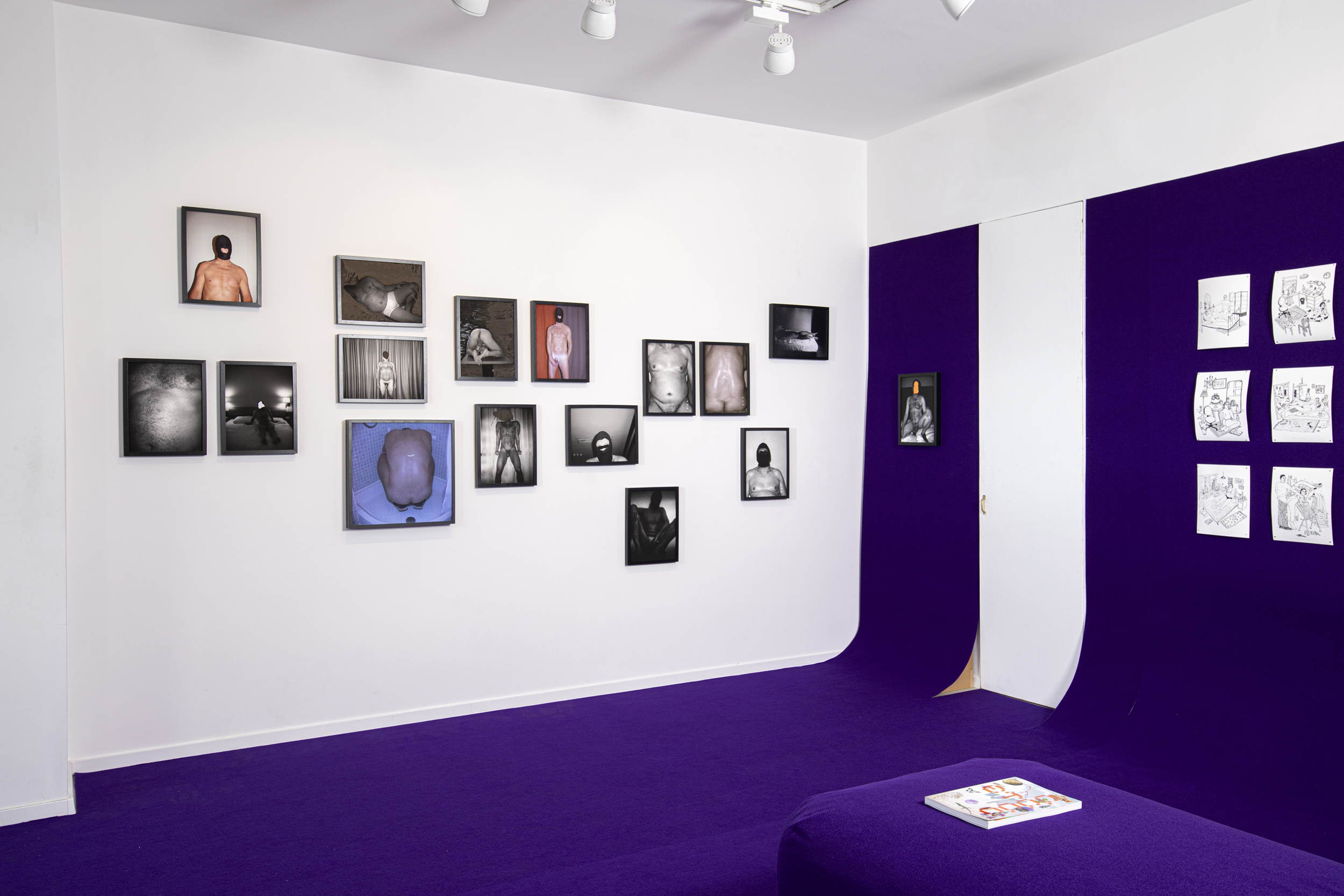ETC.: Comfort Zone
8. 5.–15. 06. 2025
Liget Gallery, Budapest, Hungary
Artists: Nikola Dimitrović, Petra Korent, Jelisaveta Rapaić, Marijo Zupanov
All photos by Barnabás Neogrády-Kiss / UGM
More often than not, we are encouraged to step out of our comfort zone, assuming there is something better waiting on the other side. The perspective that “growth begins where your comfort zone ends” is echoed endlessly in self-help books and online, with influencers telling us how to be ambitious, push boundaries, and self-improve. It takes courage and strength, we hear, and there is always a fair amount of risk in exchanging comfort for the unknown but supposedly better. In times of permanent crisis, however, can we really take a position of comfort for granted? Isn’t the unknown and the unstable more akin to our everyday experience than the idea that we might choose to live safely and predictably? On the contrary, we find that seeking or creating comfort is a struggle in itself – and one that can be considered just as brave and demanding as jumping into the unknown.
In its fourth issue, the team of ETC. Magazine explored the multitude of ways in which we seek comfort, in the context of the body, family, relationships, and community in general, while also acknowledging the discomfort on the other side of the same coin. Through a selection of projects from the magazine’s pages, the exhibition at Liget Gallery focuses on questions of intimacy, queer perspectives, gender roles and gendered spaces. While the artists approach the topic in a variety of media, they do so with a sincerity and openness, proving once again that the personal is political and that seeking comfort is an act of agency.
In its fourth issue, the team of ETC. Magazine explored the multitude of ways in which we seek comfort, in the context of the body, family, relationships, and community in general, while also acknowledging the discomfort on the other side of the same coin. Through a selection of projects from the magazine’s pages, the exhibition at Liget Gallery focuses on questions of intimacy, queer perspectives, gender roles and gendered spaces. While the artists approach the topic in a variety of media, they do so with a sincerity and openness, proving once again that the personal is political and that seeking comfort is an act of agency.

Nikola Dimitrović’s video work The Favored (2022) consists of a series of tranquil sequences showing the artist in the act of crocheting – an activity historically associated with women – in decidedly non-feminine spaces. By performing this act in public spaces with strong connotations of masculinity, Dimitrović proposes not only the re-evaluation of traditionally male and female roles but also of public space and its (un)accessibility.
Jelisaveta Rapaić explores spaces of comfort through the body and its physical interactions. In Human dog beds (2023), she creates a series of soft, bed-like sculptures placed on the floor, inviting viewers to curl up within them. To do so, one must adopt a fetal position – an intimate and vulnerable posture that evokes contrasting experiences, be it pillow talk or an immobilising doom scrolling depression.
Jelisaveta Rapaić explores spaces of comfort through the body and its physical interactions. In Human dog beds (2023), she creates a series of soft, bed-like sculptures placed on the floor, inviting viewers to curl up within them. To do so, one must adopt a fetal position – an intimate and vulnerable posture that evokes contrasting experiences, be it pillow talk or an immobilising doom scrolling depression.




Love and intimacy are at the forefront of Petra Korent’s body of work. Since 2017, when she was 20 years old, she has been documenting her sex life in an unabashed and sincere visual language. Her drawings consist of moments of comfortable solitude as well as eventual family life in black and white drawings. Eight years later, the result is an extensive portrayal of her relationships throughout the years, of sexual exploration, and of all the roles a young woman might inhabit.
![]()


Marijo Zupanov’s photography series Daddy Issues (2023) is an intimate exploration of queerness, sexuality and human connection. Originating from his desire to explore erotica in photography, the project began when he brought a camera to a casual hookup, resulting in a roll of film that captured both the beauty and brutality of the moment. Rather than focusing on sex, the images delve into themes of trust and vulnerability, capturing moments of fleeting intimacy and scenes of temporary comfort.


Curated by: ETC.
Exhibition Design: Žan Kobal, Timotej Rosc
Supported by: Ministry of Culture of the Republic of Slovenia
Exhibition Design: Žan Kobal, Timotej Rosc
Supported by: Ministry of Culture of the Republic of Slovenia
Etc. is a annual magazine, dedicated to showcasing current artistic production from the Baltic to the Balkans.
Based in Ljubljana, Slovenia, each issue is dedicated to a relevant topic in art and life. Founded to promote emerging artists, its goal is to initiate a dialogue, inspire collaborations, and challenge set views.